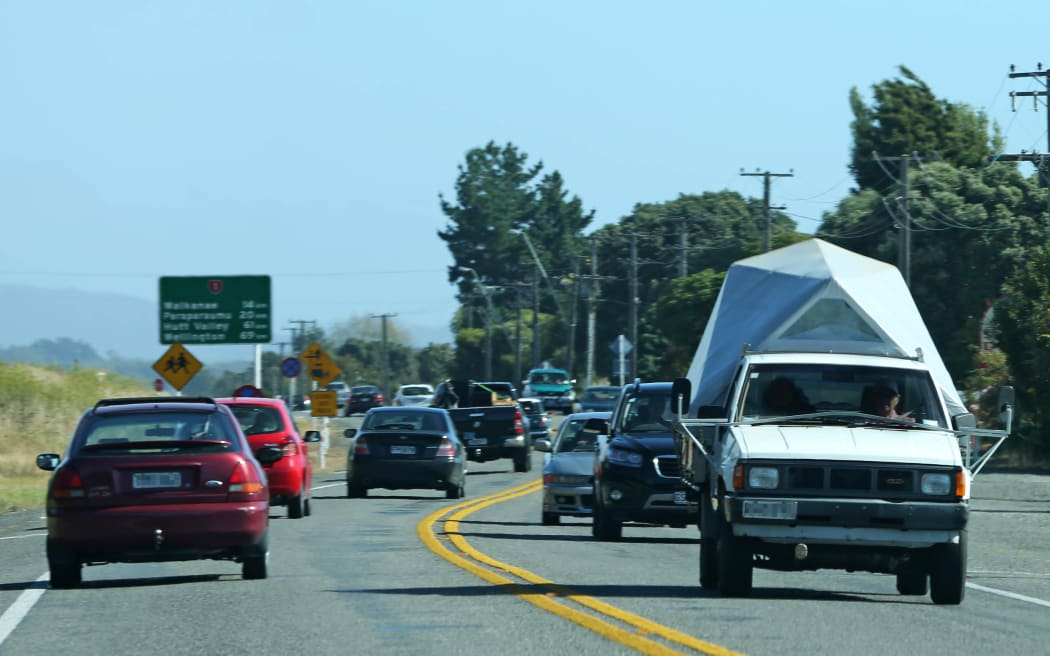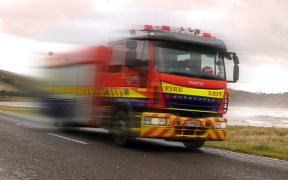Drivers with third party motor vehicle insurance will have to pay a fire services levy from July 2018.

Car owners with vehicle insurance will help fund the new national organisation Fire and Emergency New Zealand. Photo: RNZ / Alexander Robertson
Internal Affairs Minister Peter Dunne has announced $303 million will be spent over four years to combine urban and rural fire services into one organisation from the middle of next year.
The new organisation will be called Fire and Emergency New Zealand.
Mr Dunne said the fire levy, which was collected from contents, property and vehicle insurance, would fund the new organisation.
He said drivers with third party insurance had not in the past had to pay the fire levy through their insurance, though the Fire Service often had to deal with motor vehicle accidents.
"It's a recognition of the fact that one of the criticisms of the existing fire levy is that householders pay a levy, but why is a householder paying to fund someone who is extricated from a motor vehicle for instance?
"So we felt it was appropriate to put those charges where they might properly fall."
But the Automobile Association said people without car insurance would continue to 'freeload' assistance from the fire service, despite the changes.
The plan to make drivers with third-party car insurance pay the fire services levy was not fair.
"There were other places where the levy could have been put - on road user charges and on excise tax - or indeed on the registration, which would have made sure that nearly everybody was paying their fair share. The way it has been announced, there will be some people who are freeloading."
Legislation enacting the changes will be introduced to Parliament in the next three months.
The head of the firefighters union, Derek Best, said plans to create the long-awaited national fire service were sensible and would remove artificial barriers, but would not be easy.
"It's not simple when you're planning to merge 40-plus organisations coming from completely different backgrounds from one end of the country to the other."


